Hunting ducks is a centuries-old sport that not only implies the excitement of a hunt but also the experience of the companionship of a loyal four-legged friend. Selecting the right and best dogs for duck hunting may provide a huge difference in your overall success and enjoyment in the field. A properly trained breed, and you have a friend and an excellent retriever.
This guide will walk you through the best breeds for duck hunting, what benefits they have, and what factors should be considered to find the best partner in waterfowl hunting.
8 Top Types of Duck Hunting Dogs
1. Labrador Retriever: The Popular Choice
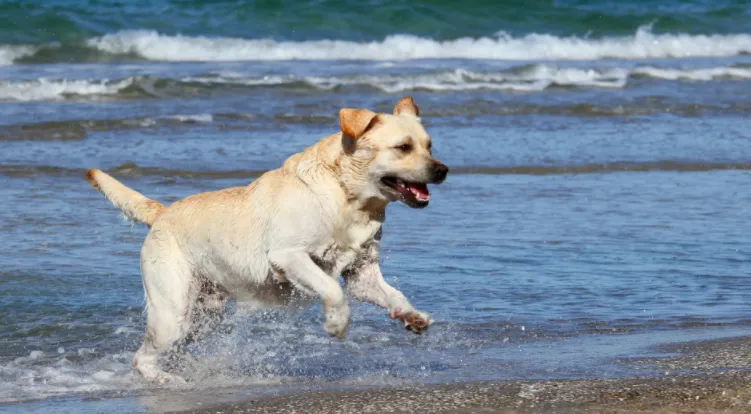
The Labrador Retriever is considered the standard of duck hunting dogs. Their shift to waterfowl was smooth, considering the fact that they were originally bred to retrieve fishing nets.
Abilities:
- Strong swimmers with a water-resistant coat
- High intelligence and eagerness to please
- Exceptional nose and memory for marking falls
Why They Are Suitable: Labradors are reliable, amiable, and teachable. Their cool temperament and adaptability make them ideal for the rookie and avid hunters alike. Check more: Comparing English vs American Lab for Hunting.
2. Chesapeake Bay Retriever: The Tough One
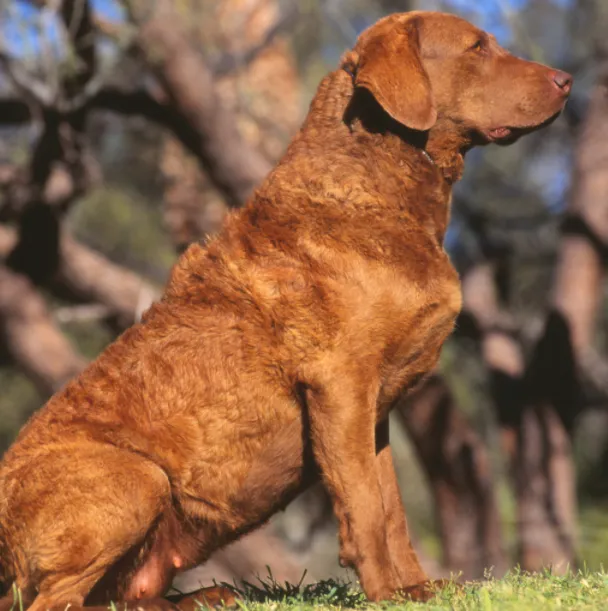
Known for their ruggedness, Chesapeake Bay Retrievers were bred to retrieve ducks in the icy waters of the Chesapeake Bay.
Abilities:
- Incredible stamina and strength
- Thick, oily coat that resists cold and water
- Tenacious work ethic and loyalty
Why They Are Suitable: The Chesapeake is suited to those in colder weather and rough areas that require toughness to hunt. They are very reliable due to their endurance and protective nature.
3. Golden Retriever: The Friendliest One
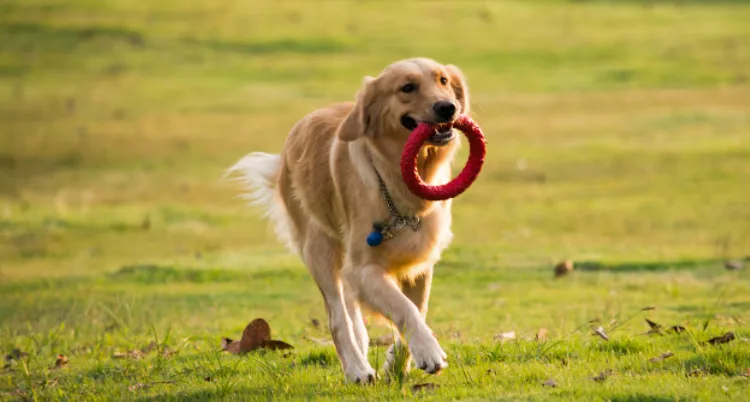
The Golden Retriever seems like a very nice dog, but it is also a great duck-hunting dog.
Abilities:
- Great swimmers with a love for water
- Gentle mouth grip for retrieving birds
- Highly trainable and eager to please
Why They Are Suitable: Goldens are just the right combination of a family dog and hunting companion. They are societies that flourish in the presence of people and prefer being rewarded.
4. Boykin Spaniel: The Energetic One
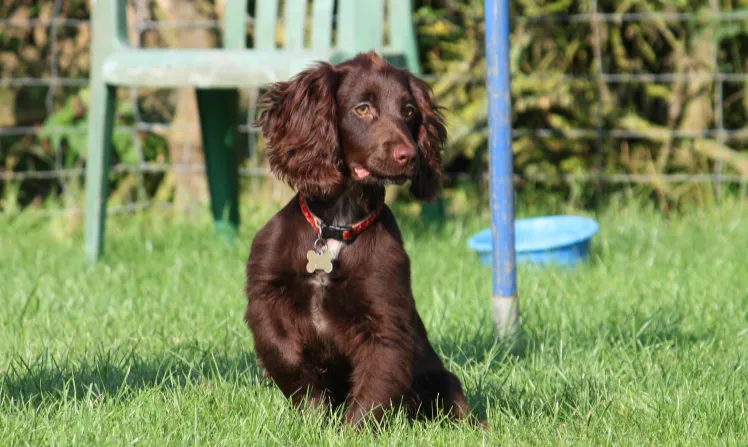
The Boykin Spaniel is a small but powerful South Carolina-based retriever that suited small boats and marshes.
Abilities:
- Agile and fast in tight spots
- High energy levels
- Excellent nose and water drive
Why They Are Suitable: Boykins are ideal pets for hunters negotiating through smaller waters or those who want small dogs. They are small in size but have unparalleled enthusiasm and stamina.
5. American Water Spaniel: The All-American Duck Dog
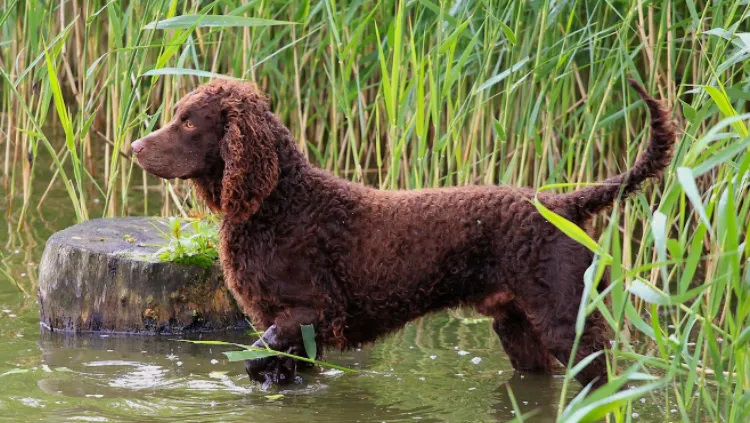
The American Water Spaniel is one of the few American breeds developed in the Midwest with an emphasis on versatility as a hunting dog.
Abilities:
- Dense, water-resistant coat
- Dual-purpose hunting: upland and waterfowl
- Loyal, eager to work, and intelligent
Why They Are Suitable: They can easily adjust to various terrains and weather, thus making them most useful in diverse hunting situations. They suit the family as well as the field because of their size and temperament.
6. Irish Water Spaniel: The Unique Retriever
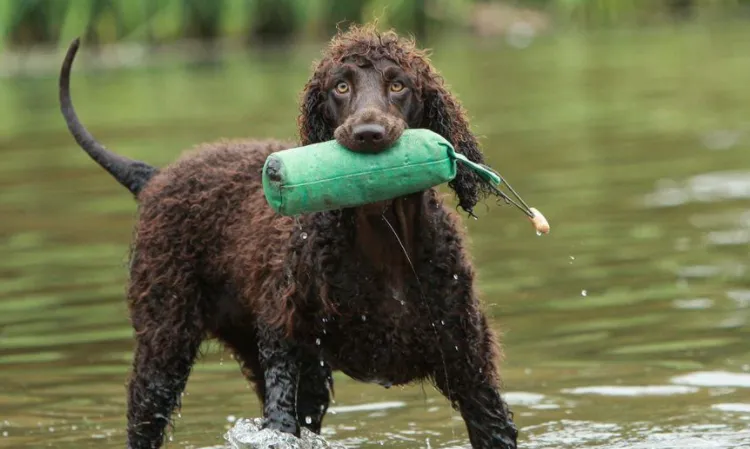
This is one of the oldest spaniel breeds, characterized by its curly coat and an intelligent breed of dog.
Abilities:
- Strong swimmers with a hypoallergenic coat
- Independent yet responsive
- Excellent endurance
Why They Are Suitable: Their lack of shedding and good looks are pluses, but their ability to retrieve is their best-kept secret as a duck hunter.
7. Nova Scotia Duck Tolling Retriever: The Smarter One
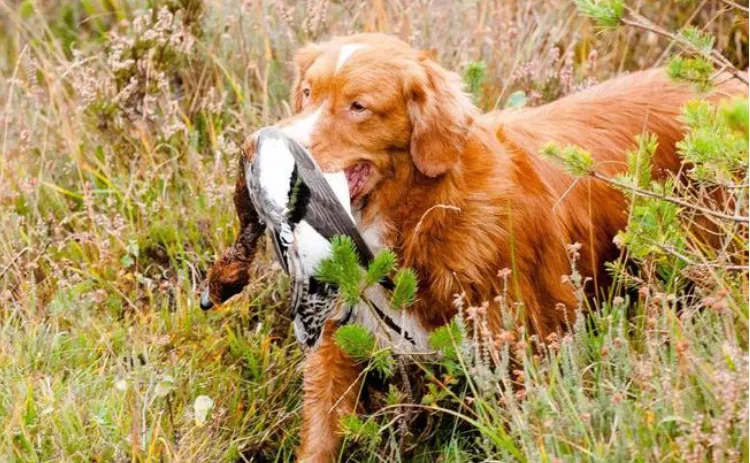
This ingenious breed was made to attract and catch ducks. Their so-called tolling behavior is a way that resembles the behavior of foxes, which attracts ducks.
Abilities:
- Intelligent problem-solvers
- Quick learners with high drive
- Agile and energetic
Why They Are Suitable: They can be excellent swimmers, endurance hiking partners, agile and fast professional sports dogs, and highly skilled hunting dogs. Ideal for hunters who like their smarts and energy. They are small in size and therefore suitable for use in narrow places and boats.
8. German Shorthaired Pointer: The All-Purpose One
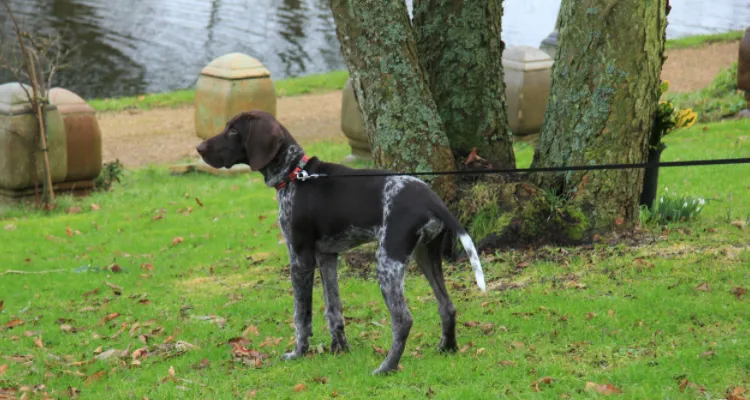
The German Shorthaired Pointer is not a traditional retriever, though it is a versatile hunter that can be used to locate waterfowl and upland game.
Abilities:
- Athletic and energetic
- Strong swimmers with a keen nose
- Excellent pointing and retrieving skills
Why They Are Suitable: When it comes to having an all-purpose hunting dog then the GSP is the best. They are versatile and sturdy, which is why they are good for hunting all day.
Important Factors in Dog Breed Decision
Selecting the appropriate breed of duck hunting dog is not the whole story. There are a few subtle things that may affect the functionality of a dog in the field and the way the dog will fit into your lifestyle. These are the bloodline, gender, age, and temperament, which can ruin or make your hunting experience.
Does Bloodline Matter?
Yes. Bloodlines are very important in the choice of a duck hunting dog. A proven hunting line dog is more likely to pass on higher prey drive, comfort in the water, trainability, and retrieving eagerness.
Such genetics are capable of making the time of training much less, and the work in the field much better. Brand-name breeders tend to test health problems that are typical of hunting breeds.
They will insist on breeding dogs with great temperaments and instincts. To give an example, a Labrador that has a good field trial pedigree will be generally more enthusiastic and attentive than one that was bred as a pet.
🔔Tip: Always ask to see pedigree records, health clearances, and—if possible—videos or testimonials of the pup’s parents working in the field.
Male vs. Female Dogs
The distinction between the male and female hunting dogs can be delicate, yet it can impact your lifetime experience.
Males are usually bigger, more powerful, and could be dominating. This qualifies them as potentially improved in retrieving large birds in a rough environment or cold water. Nevertheless, they also may be more obstinate or inattentive, particularly in their teens.
Females are smaller, less difficult to control, and mature earlier; hence, they are good companions to the hunters who want a more compliant companion. They are also less territorial. But they will go into heat during hunting season, and this causes logistical problems unless they are spayed.
🔔Tip: Neutering or spaying can help level behavioral differences. But always weigh this decision with your vet and consider its impact on the dog’s drive and energy.
Puppy vs. Mature Dog
Puppy: It is possible to begin with a puppy since you can shape a dog literally entirely. Your favorite commands, routines, and behaviors can be taught early. Puppy training, however, consumes a lot of time, patience, and consistency. You won’t be taking this dog into the field for at least a year or two, depending on its development.
Mature Dog: If you are in a rush or just do not want to deal with the puppy stage, a started or fully trained dog can be the way to go. These dogs are usually high-priced but ready to go. You need to be cautious. The dog must bond with you and may need to unlearn bad habits from previous training or homes.
You should evaluate your timeline, budget, and experience level. First-time hunters may benefit from a started dog paired with a professional trainer to ease the transition.
Temperament of Dogs
The temperament of the duck dog is equally essential to the physical capacity. The perfect duck hunting dog must be tame, obedient, highly sociable, and not too aggressive or fearful.
Golden Retrievers and Boykin Spaniels are more sociable and friendly. Thus, they are great pets at home and also field dogs.
When you are hunting in a blind and waiting a long, cold time, you will want a dog that is patient and steady and will not bark or break too soon. Energetic breeds might require additional training to attain that poise. On the other hand, a super chill dog could struggle with high-intensity retrieving work.
🔔Tip: Spend time with a pup or adult dog before committing. Observe how they react to new environments, loud sounds, and basic commands to assess their suitability.
How to Train Your Duck Hunting Dog?
The process of training a duck dog does not only entail teaching it to retrieve; rather, it is about creating a disciplined, self-assured, and dependable hunting companion.
Effective training must commence as early as 7-8 weeks and entail simple obedience such as sit, stay, come, and heel. These basic commands are critical to safety and control over the field and water.
As your dog grows older, you will add more complicated training, like:
- Marking: Teaching the dog to remember where birds fall and retrieve them accurately.
- Steadiness: Training the dog to remain calm and still in the blind until given a command to retrieve.
- Water retrieves: Using dummies to simulate waterfowl fetches, encouraging swimming and retrieval in cold or moving water.
- Blind retrieves: Commanding the dog to fetch downed birds it didn’t see fall using hand signals and whistles.
- Decoy and blind exposure: Familiarizing the dog with boats, blinds, and decoys to prevent confusion or distractions during real hunts.
Should You Hire a Pro Trainer?
It can be a good idea to hire a professional trainer, particularly when you are a rookie duck hunter or have no time to devote to everyday training. Pro trainers are experienced, and they possess the facilities to take your dog to experience near hunting conditions. Most provide a starter dog program, typically 3 to 6 months, in which all the basics of field-ready training are completed.
Nevertheless, you will have to support training at home and establish a connection with your dog. The bond between a handler and a hunter is something that no trainer can take the place of. Ideally, get a trainer who can help you get involved in the process, so that the transition becomes smooth.
Prepare Your Duck Dog Year-Round
How to Prepare Before the Season?
A two to three-month preparation should start before duck season. Make your dog physically fit as much as possible by running retrieves daily, long walks, and swimming. Start getting up early and take your dog through early morning activities to simulate actual hunt days.
Introduce gear such as decoys, duck calls, camo vests, and ground blinds. Set up hunts in your backyard or in a field to remind your dog how to mark or stay steady. Ideally, use dummy birds that look real and use real duck scent.
Before the hunting season begins, all veterinary check-ups are necessary. Make sure you are up to date on vaccinations and have flea/tick preventatives. Your dog is in good joint and weight shape to do lots of active work.
How to Keep Your Duck Dog Healthy in the Off-Season?
The off-season is no holiday to your dog, but an opportunity to stay in shape, stay in skill, and stay connected. Training must take place daily or weekly throughout the year to strengthen commands and avoid the weakening of skills.
Swimming, fetch work, and nose work (scent games) are awesome at keeping both mind and body in tip-top shape.
Watch out for the off-season weight gain. Feed your dog according to its activity and add supplements in case your breed has joint problems. Frequent vet checkups, brushing, and grooming contribute to long-term health.
Do not forget the emotional part because your dog lives on purpose. Providing them with work or games keeps the mind occupied and avoids behavioral problems.
Don’t overlook the emotional side. Your dog thrives on purpose. Giving them jobs or games keeps their mind engaged and prevents behavioral problems.
Essential Equipment for Your Duck Dog
Equipping your dog with the right gear ensures both performance and safety. Here’s a must-have list for every duck dog owner:
- Neoprene dog vest: Keeps your dog warm in cold water and protects from brush and ice. It would be better to wear a vest with reflective materials or a light-up collar, which can enhance safety and visibility in the early morning.
- Training dummies and bumpers: Used year-round to simulate retrieves.
- Whistle and hand signals: Reinforce control during distant retrieves.
- Dog stand/platform: For keeping your dog out of the cold water while waiting.
- Crate or kennel: For safe transport and rest during long hunting days.
- Tracking collar or GPS collar: Essential in large fields or unfamiliar areas.
- First aid kit: Includes wound care, tweezers (for burrs or ticks), and saline rinse.
- Dog boots to protect paws in icy or rough terrain. This is optional but you can check more on: Are dog hunting boots a good idea?
Conclusion
It is not just a matter of the popularity of the breed as a duck hunting dog; it is about compatibility, commitment, and care. Whether it is the reliable Labrador or the ingenious Nova Scotia Duck Tolling Retriever, there is a reason behind each type of breed.
Know what you want, research lineage, and temperament to find that right one. Your dog can not only become extremely useful in the field but also a good member of your family. This can be achieved with a little training, care throughout the year, and the appropriate equipment.
Already an experienced waterfowl hunter or just getting into it? Purchasing the correct breed of duck hunting dog is the initial step to having many successful seasons to come.
More About Duck Hunting:
- Best Duck Hunting Waders Top Picks
- 9 Best Duck Decoys For The Seasons
- When Is Duck Hunting Season?
- Duck and Goose Differences Guide


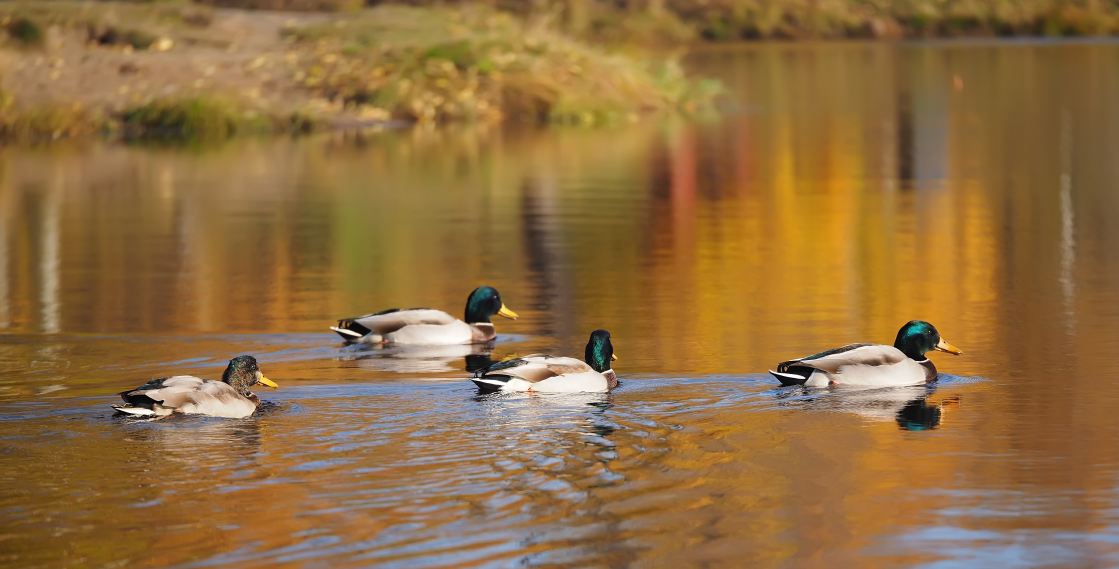
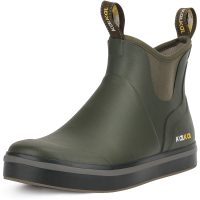
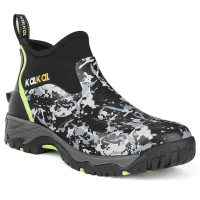

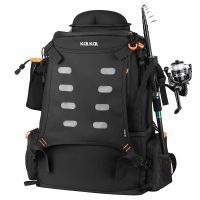
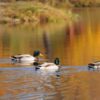
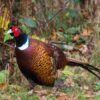
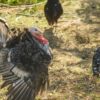

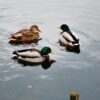

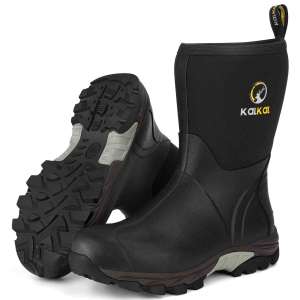
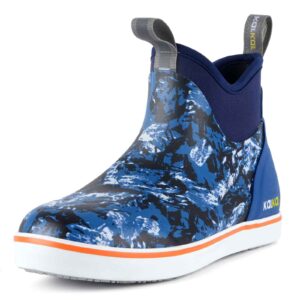
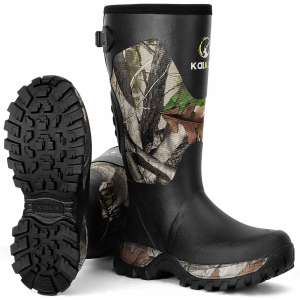
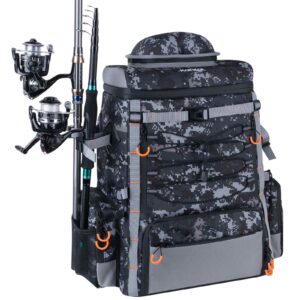



Leave a reply